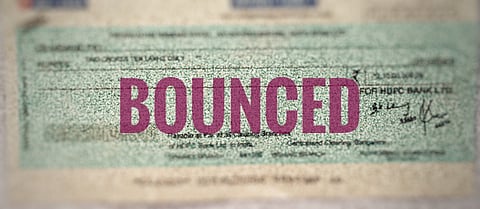
- Latest Legal News
- News
- Dealstreet
- Viewpoint
- Columns
- Interviews
- Law School
- Legal Jobs
- हिंदी
- ಕನ್ನಡ

The Madras High Court recently clarified that when a cheque bouncing case is filed with respect to a cheque drawn on behalf of a partnership firm, the firm itself would also have to be arraigned as an accused, regardless of whether the partnership is registered or unregistered.
The law in this regard was summed by Justice N Anand Venkatesh thus,
“Section 141 of the Negotiable Instruments Act deals with the concept of vicarious liability, wherein for the offence committed by the Company or a partnership firm, the directors or the partners, as the case may, are deemed to be guilty of the offence when it is shown that they are in charge of and responsible for the conduct of the day-to-day affairs of the business or the firm, as the case may be.
While interpreting the provision, the Hon’ble Supreme Court has categorically held that the complaint cannot be maintained against the directors of the Company, without making the company as an accused person. This concept has been extended even for Partnership Firms.
The registration or non-registration of the Partnership Firm will have no bearing insofar as 141 of the Negotiable Instruments Act is concerned.“
In the cheque bouncing case before the Court, an unregistered partnership named Laxmi Agencies was owed dues to its partner after he was made to compulsorily retire from the firm. A cheque issued for the payment of Rs. 3 lakh bounced. This prompted the former partner to file a case under Section 138 of the Negotiable Instruments Act against two partners of the firm.
However, the complainant did not make the partnership firm itself an accused. The two partners subsequently approached the High Court to quash the case, contending that the complaint cannot be maintained without making the partnership firm an accused in the complaint.
It was submitted that the cheque was issued on behalf of the firm. Therefore, it was argued, the firm would have to be made an accused, in view of Section 141 of the Negotiable Instruments Act. This provision states:
“If the person committing an offence under section 138 is a company, every person who, at the time the offence was committed, was in charge of, and was responsible to the company for the conduct of the business of the company, as well as the company, shall be deemed to be guilty of the offence and shall be liable to be proceeded against and punished accordingly…”
The two partners argued that this provision would apply to a partnership firm, particularly given the explanation to the Section, which defines a “company” as “any body corporate and includes a firm or other association of individuals.”
The complainant/former partner countered that the provision would only apply to legal entities. It was his case that since Laxmi Agencies was an unregistered partnership, it was not a legal entity. Therefore, Section 141 would not apply. Consequently, he contended that there is no requirement to make the partnership firm an accused and that his complaint against the two partners is maintainable.
The Court, in turn, observed that the Supreme Court, in Aneeta Hada v. Godfather Travels and Tours Private Limited, has already settled that a complaint under Section 138 of the Negotiable Instruments Act cannot be maintained without issuing a statutory notice to the company and without adding the company. In the Madras High Court case of N Elangovan v. C Ganesan, the same law was made applicable to a partnership as well.
Justice Venkatesh proceeded to observe that there would be no distinction in applying this law to partnership firms whether or not they are registered. Therefore, in the present case, the Court allowed the plea to quash the cheque bouncing case, noting:
“Only the partners have been shown as accused persons in this complaint. Such a complaint is unsustainable and not in accordance with Section 141 of the Negotiable Instruments Act and the law laid down by the Hon’ble Supreme Court. Therefore, the proceedings will have to be necessarily interfered with by this Court in exercise of its jurisdiction under Section 482 of Cr.P.C.”